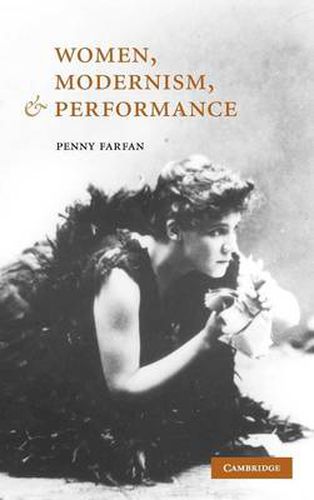Readings Newsletter
Become a Readings Member to make your shopping experience even easier.
Sign in or sign up for free!
You’re not far away from qualifying for FREE standard shipping within Australia
You’ve qualified for FREE standard shipping within Australia
The cart is loading…






Women, Modernism, and Performance is an interdisciplinary study that looks at a variety of texts and modes of performance in order to clarify the position of women within - and in relation to - modern theatre history. Considering drama, fiction, and dance, as well as a range of performance events such as suffrage demonstrations, lectures, and legal trials, Penny Farfan expands on theatre historical narratives that note the centrality of female characters in male-authored modern plays but that do not address the efforts of women artists to develop alternatives both to mainstream theatre practice and to the patriarchal avant garde. Focusing on Henrik Ibsen, Elizabeth Robins, Ellen Terry, Virginia Woolf, Djuna Barnes, Edith Craig, Radclyffe Hall, and Isadora Duncan, Farfan identifies different objectives, strategies, possibilities, and limitations of feminist-modernist performance practice and suggests how the artists in question transformed the representation of gender in art and life.
$9.00 standard shipping within Australia
FREE standard shipping within Australia for orders over $100.00
Express & International shipping calculated at checkout
Women, Modernism, and Performance is an interdisciplinary study that looks at a variety of texts and modes of performance in order to clarify the position of women within - and in relation to - modern theatre history. Considering drama, fiction, and dance, as well as a range of performance events such as suffrage demonstrations, lectures, and legal trials, Penny Farfan expands on theatre historical narratives that note the centrality of female characters in male-authored modern plays but that do not address the efforts of women artists to develop alternatives both to mainstream theatre practice and to the patriarchal avant garde. Focusing on Henrik Ibsen, Elizabeth Robins, Ellen Terry, Virginia Woolf, Djuna Barnes, Edith Craig, Radclyffe Hall, and Isadora Duncan, Farfan identifies different objectives, strategies, possibilities, and limitations of feminist-modernist performance practice and suggests how the artists in question transformed the representation of gender in art and life.